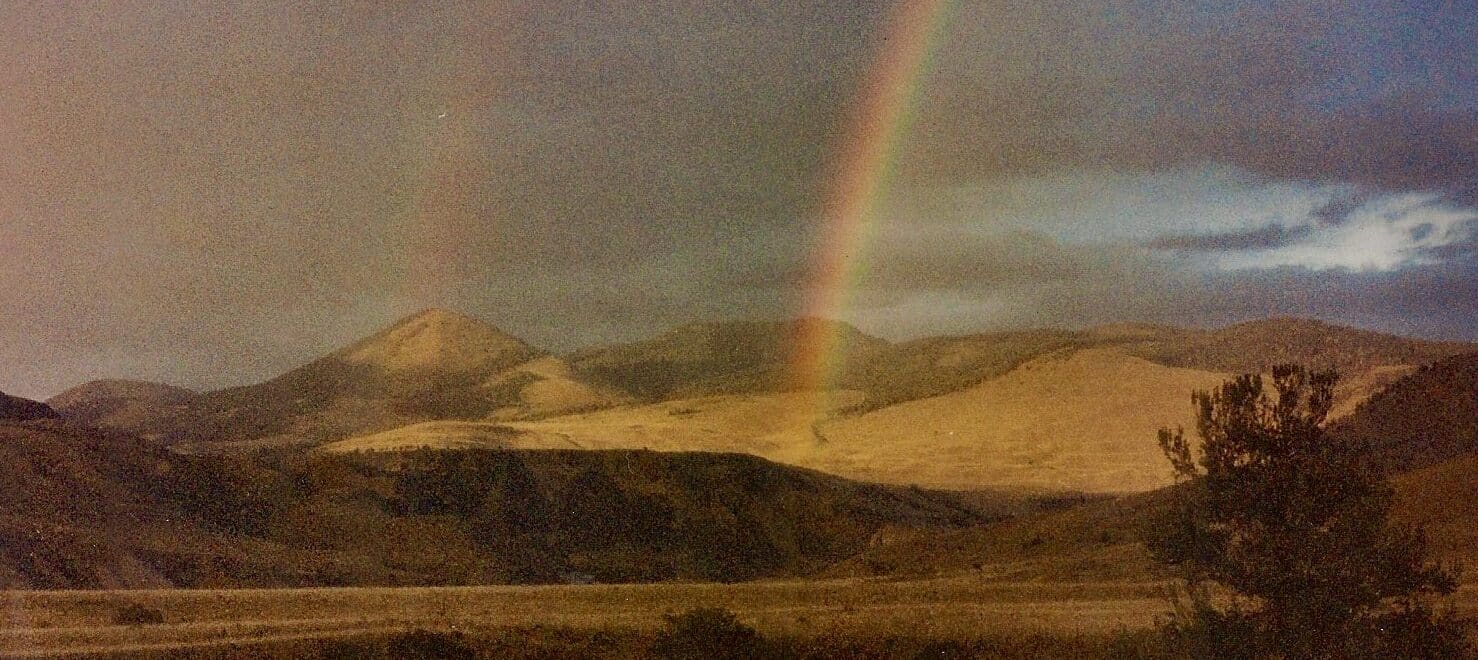One day at work many years ago, before I had a book out, a story crossed my desk that defined the life I wanted. I was working full-time at a small conservation magazine as assistant editor. The job was 40 hours a week. At home I was single mom to five-year-old Silas. I wanted to be a writer, not a company woman. The years stretched before me, and I began to cast about for a safe way out of confinement. Should I move back home with my parents? Gold-dig? Get an MFA? In fact, did I even need an MFA to be a writer?
One day I happened to read a story called “Paradise Ranch” that published in the March 21, 1993 issue of The Los Angeles Times. The piece was about Gray Ranch, a 500-square-mile refuge in New Mexico located in an ecological tapestry called Sky Islands—tall mountains surrounding grasslands of the Chihuahuan Desert.
I checked the byline: Alan Weisman. Ignoring the day’s editing, I immediately crafted a letter to Mr. Weisman and sent it c/o LA Times. “You’re doing the kind of writing that I want to do,” I said. “How did you get there?”
Seeking Advice on the MFA Question, If You Need One to Be a Writer
How did you come to write about nature and science? Did you go to graduate school? Was it helpful? Were your studies in ecology or biology or English?
Kind Alan Weisman answered my letter. Here I need to apologize for the hundreds of letters that I have received from folks since that moment many years ago, some of which I have been able to answer and some of which I have not. I thank Alan Weisman. That I still possess his response doesn’t say enough about what it meant to me. It set me on a course that I had been tacking toward without a compass.
Weisman wrote that yes, he had a Master’s in journalism, which, “taught me nearly nothing about what I actually do.”
What he actually did was write freelance stories about environment and culture.
He told me that his total science background was high-school chemistry and a single course in college geology. About graduate school he said,
The one thing valuable about it was a single course in science writing (and I may be talking only about a single assignment within that course), which taught me to listen hard to scientists and ask innumerable embarrassing questions until I could finally translate what they claimed was important to other dunderheads like myself.
One assignment in one class—I took a risk. I began to apply to grad schools until I was given an assistantship. Then I packed up and headed to the University of Montana.
Do You Need an MFA to Be a Writer?
No, you do not need a graduate school MFA to be a writer–even a great writer.
Will an MFA benefit you? Possibly, and very possibly it will set you back. MFA programs churn out thousands of underemployed and unemployed writers, and you could be ground down into the masses.
Can You Become a Writer on Your Own?
No. You need to study writing, even if you are self-guided, and you do this by
- reading voraciously
- attending readings
- speaking with authors and writers
- taking classes wherever and whenever you can
- writing every day
- constantly trying to make the writing better.
What Would be an Alternative to an MFA?
One alternative is a handmade MFA, a program of study that includes all of the above.
You know that I teach writing classes. If there’s a writing path ahead that you long to be walking, I’ll do everything I can to help get you on it and guide you for a bit along it. I can’t make you read or make you write, and I can’t wave a magic wand and create beautiful empty hours that you fill putting words to paper. I can’t promise you publications or gobs of money.
Writing is a calling. It’s an impulse that stirs deep within you. A spark starts glowing, and if you listen to it, it consumes you.
What I Would Tell You
If you wrote me the letter that I wrote Alan Weisman, and you asked me how I came to write about nature, how I got here, and if grad school helped me, I would tell you:
What I needed was a space in my life where I could let writing consume me like a conflagration, and I found that in grad school. I was one of the lucky ones. Nobody promised me an easy hike up to a summit, and that was a good thing, because the hike has not been easy, and I’ve never reached a summit.
But I have constructed a life of books. I move through the world looking for stories, and when I find a good one, I’m lucky to be able to work with it. I sit and clack two words together, listening to how they sound. Then I add a third. I take some commas and some periods out of my nail apron, and I hammer those in. I listen again and take out some commas.
I do this until the story is told.

Leave a Reply